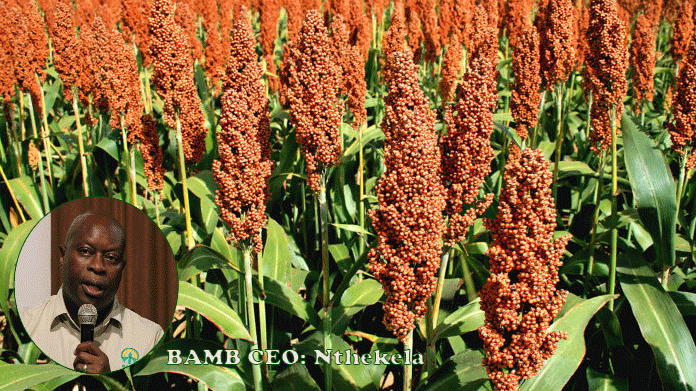No Internet, cellphone coverage in the CKGR
The digital age is well and truly upon the land, with Botswana Communications Regulatory Authority (BOCRA) noting ‘a significant increase’ in Internet connection and upgrading across the country.
This is in addition to other achievements post Covid-19, which slowed down several sectors but provided a sharp boost to online communication.
Confirming this in the authority’s 2021-2022 Annual Report, BERA Chief Executive Officer (CEO), Martin Mokgware, announced, “A significant increase in mobile broadband coverage was also realized as operators expanded their 3G and 4G networks across the country. The network expansion project funded by UASF [Universal Acces and Service Fund] contributed to positive results as the LTE population coverage [a half-point between 3G and 4G] increased from 56 percent to 90 percent against a target of 64 percent. Fixed broadband subscriptions increased from 15 percent to 18 percent during the year, exceeding the targeted 16 percent.”
The high Internet connectivity came with a number of challenges, including cyber-attacks and cyber bullying.
The CEO says since the establishment of the Computer Security Incident Response Team (CSIRT) in January 2020, the facility issued multiple alerts concerning different cyber-attacks.
“Through CSIRT, BOCRA detected several cyber-attacks targeted at Botswana, which included malware propagation website defacements, leaked email credentials, ransomware [a type of malware that prevents you from accessing your computer], and online scammers to mention but a few,” the report said.
So far, the team registered 682,091 attacks, 620 leaked credentials, 53,484 Botnet [a network of computers infected by malware that are under the control of a single attacking party, known as the “bot-herder] infections and 33,156 vulnerabilities on its constituents.
The CSIRT recorded 530 drone Botnet incidents while 680 home routers were found to be vulnerable to attacks. Four companies experienced ransomware attacks which disrupted their daily operations.
In response, BOCRA embarked on a number of initiatives, including radio interviews, to raise awareness and sensitise Internet users on the threats.
Mobile phone service providers
The quality of service for the whole year indicated a steady performance from all operators, except for SMS Delivery Success Rate for Orange, which was slightly below target.
“All the operators recorded good performance for Voice Drop Call and Congestion Rate over the year, except for the month of May where BTC recorded a Drop Call Rate of 2.3 percent against the set 2 percent standard. Network improvements made by operators during the year helped to address increase in traffic volumes and changes in traffic patterns,” says the report.
All the figures and illustrations show no coverage in the Central Kgalagadi Game Reserve.
Complaints
Consumers reported low to unavailable Internet connection from operators, a hiccup attributed to congestion at homes since most people started working from their homes because of the Covid-19 pandemic.
“Orange and BTC registered the most complaints, with each registering 37 percent of the complaints received. Mascom followed with 15 percent and MicroTeck with 4 percent of the complaints received. Most of the complaints were resolved.”
Meanwhile, the pandemic hit hard on delivery of mail and parcels.
“The analysis of mail volumes recorded between the period ending March 2021 and March 2022 shows a decrease of 41 percent in the movement of letters and parcel items. The decrease was due to Covid-19 pandemic on postal operators’ business. During the period ending March 2022, the postal market recorded a total of 13, 847, 587 mail items, inclusive of both letter mail and parcel mail, compared to a total of 23, 358, 417 mail items registered for the period ending March 2021.”

















